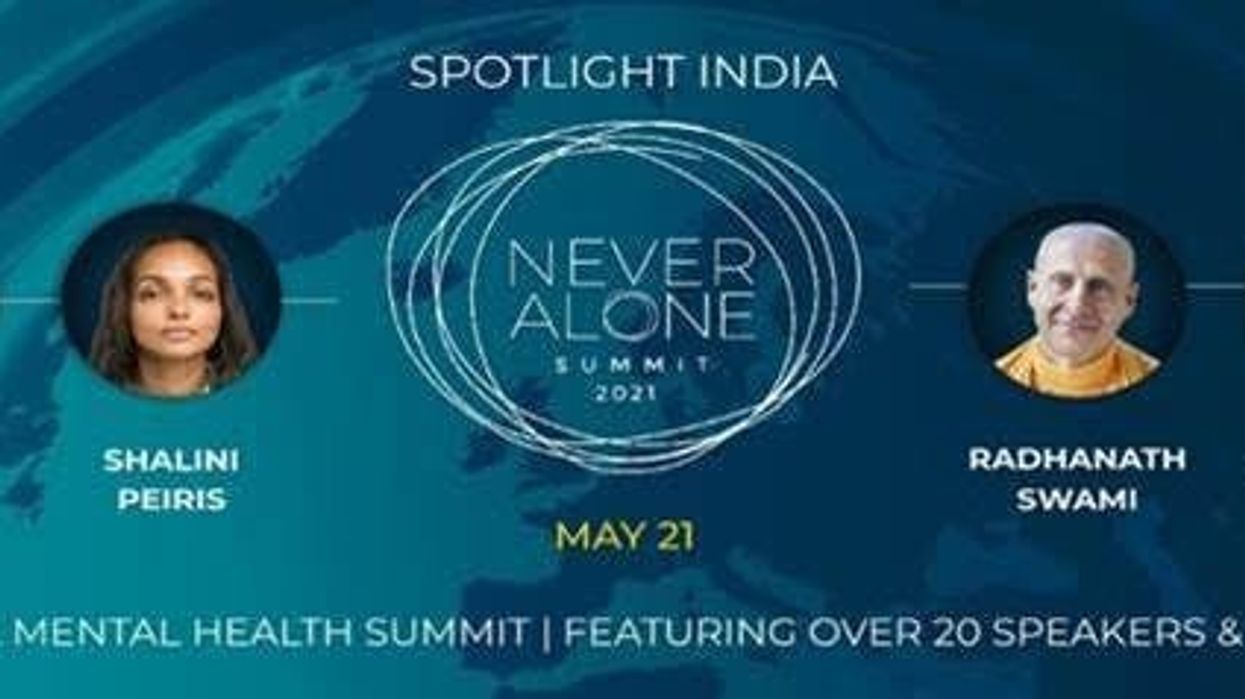THE Hinduja Foundation, philanthropic arm of Hinduja Group, is organising a virtual global summit on May 21 to promote the importance of mental health during the Covid-19 pandemic.
The #NeverAloneSummit will be held in association with the Chopra Foundation, the John W Brick Mental Health Foundation, and CG Creatives.
It will be curated by Satya Hinduja’s Alchemic Sonic Environment to create a multisensory deep listening experience designed to invoke states of reflection, receptivity, and exchange, a statement said.
The Spotlight India section of the summit will include speakers such as Sadhguru, Radhanath Swami, Pujya Swami Chidanand Saraswatiji, Dr. Mohan Agashe, Luke Coutinho, Abhay Deol, Shalini Peiris, Dr. Tara Swart and other eminent advocates of mental well-being in south Asia.
This virtual Summit will be streamed live on Facebook, YouTube, and other media platforms at 2pm (BST) on Friday (21) and participants can access free online tools to support their mental health and well-being through https://neveralonesummit.live/
Leading mental health professionals, wellness experts, brain scientists, artists, and musicians will be sharing mental health strategies, solutions, and tools to boost mental and emotional resilience for a global audience, with India at its core, the foundation said in a statement.
Many of the participants will be sharing rituals, prayers, and creative gestures tuned to the frequency of 136.10 Hz - the frequency of the Earth’s rotation around the Sun, their voices building a collective resonance for the entire summit.
Gopichand P Hinduja, co-chairman, the Hinduja Group, and the Trustee, Hinduja Foundation said, “Mental Health Issues are a silent and an unrecognised pandemic in itself. With their gravity often brushed aside because of false beliefs that lead to avoidance of the condition, they compound to necessitate medical interventions. In some societies, seeking that intervention itself becomes a challenge because of the stigma attached.
"In my view, the afflicted person requires a cross-section of interventions – therapeutic to spiritual - to regain one’s self-esteem and faith, and realizes one is never alone. This Summit presents the entire integration of such elevating possibilities”.
In 2015, a study conducted by the World Health Organization shows that one in five Indians may suffer from depression in their lifetime—nearly 200 million people. Due to the stigma associated with mental illness, a lack of awareness, and limited access to professional help, only 10-12 per cent of these sufferers will seek help.
Paul Abraham, President, Hinduja Foundation has said that the Summit is a step towards raising awareness and normalising the conversation about mental health and eradicating the stigma that has unfortunately developed around it.
Satya Hinduja, Sound Artist, Futurist, and Founder of Alchemic Sonic Environment, said “Alchemic Sonic Environment is pleased to partner with the Chopra Foundation's Never Alone global mental health summit for Spotlight India, a collective deep listening platform, merging the arts and dialogue to prioritise and raise awareness of mind-body medicine and to reveal and build new sustainable ecosystems for the future of a mental wellbeing culture."
Dr. Deepak Chopra MD, founder of The Chopra Foundation, said, “The Chopra Foundation is grateful to partner with the Hinduja Foundation and luminaries in India and the world to help heal the global pandemic of mental distress that is behind acute and chronic illness and tragic loss of life every few seconds."
For more details, click here





